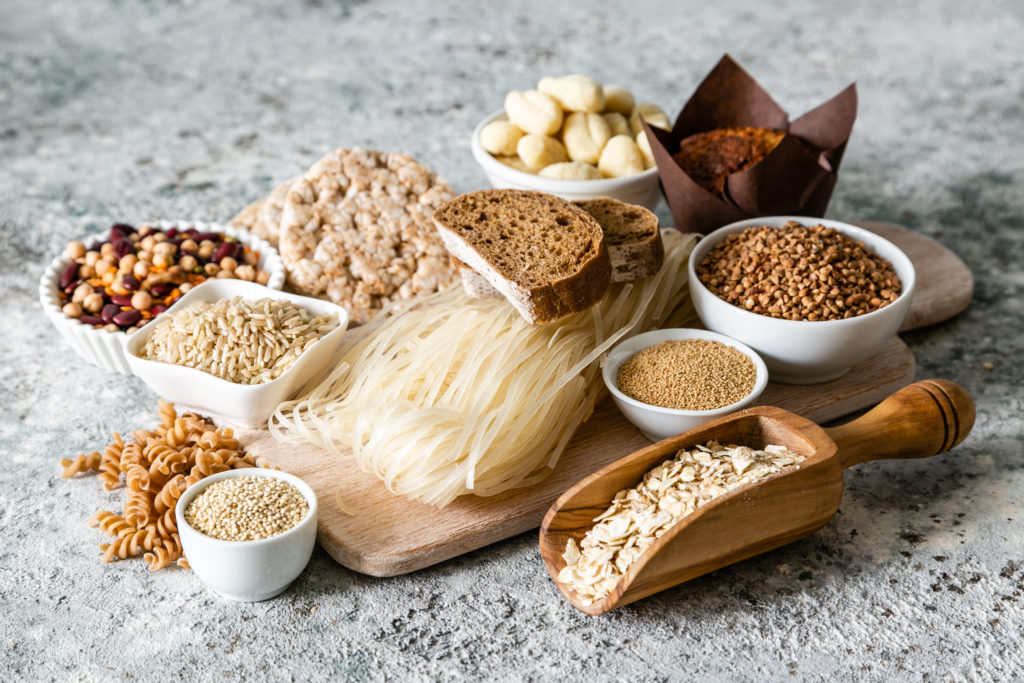Gluten is a protein that’s found in grains such as wheat, rye, and barley. The common products that contain gluten include bread, cereal, pasta, pizza, and beer. However, gluten can also be found in many products you might not expect, such as toothpaste and sauces.
In today’s diet fad, you may have noticed that there’s more food choice that’s free from recipes that include gluten. For one, this is because some have discovered that they’re intolerant to gluten or have celiac disease, causing them the inability to digest gluten. For people that suffer from celiac disease, the smallest amount of gluten triggers an immune response that’ll damage the lining of the small intestines, causing pain, inflammation, and, in severe cases, death.

In addition to the reasons above, others also opt for gluten-free diets for its benefits, hence more people want to incorporate gluten-free food in their routine. That being said, here are the health benefits of cooking gluten-free meals.
- Improved Energy Levels
Fatigue is one of the symptoms of gluten sensitivity and celiac disease. As mentioned, when a person who’s gluten-sensitive ingest gluten products, there intestines’ lining will be damaged, causing pain and inflammation. A damaged intestine won’t allow one to absorb nutrients such as iron, which leads to diseases such as anemia.
Preparing gluten-free meals can help intestines to heal properly and ensure that nutrients are efficiently absorbed. You can then enjoy the energy and fitness levels that you might experience throughout the day.
Carbohydrates are the main source of energy in your diet, making it important for your health. However, gluten-free recipes suggest that you should only eat a sufficient amount of carbohydrates that your body requires. When you ingest heavy-based carbohydrates such as white maize meal or white bread, you can feel lethargic and bloated.
Gluten-free carbohydrates can come in the form of bread made from buckwheat, quinoa, pasta, and millet. Including these in your diet ensures that you have the energy you require while remaining healthy.
- Reduces Inflammation
Gluten can contribute to inflammation outside the gut, which can directly cause chronic joint pain, leading to arthritis. Any trace of gluten is enough to increase the risk of joint inflammation and pain, particularly in the back the rest in the knees. This may lead to paralysis or death.
Enjoying gluten-free recipes might lower the risk of inflammation and the pain that comes as a result.
- Improved Skin Health
Eating gluten can cause a skin condition known as Dermatitis herpetiform. This is an autoimmune response that presents itself in the form of red and itchy skin. In extreme conditions, the skin can become inflamed and develop blisters.
Not all people who experience skin irritation suffer from celiac disease, and it’s not always that celiac disease results in Dermatitis herpetiform. Gluten-free meals simply reduce the risk of rash as a result of a negative response.
It’s important to seek medical advice regarding any skin conditions that you may experience as this may indicate conditions unrelated to gluten in your diet. If that’s the case, completely eliminating gluten from your diet might not solve the issue of skin ailment.
- May Help With Autism
Various studies have suggested that a gluten-free diet may alleviate some signs of autism in children. Parents and hospitals reported that a gluten-free diet seems to help improve behavior, social skills, and learning in children that suffer from autism.
If you believe that your child is autistic, you may try changing their diet and cook gluten-free recipes for them. However, this should be done under the supervision of a registered healthcare professional.
Health Caution
If you suspect that you might be experiencing symptoms of celiac disease, including diarrhea, bloating, fatigue, and anemia, you must seek medical advice. Your medical practitioner can decipher whether these are symptoms of celiac disease or if these are indicative of other health conditions.
Avoid eliminating all gluten before visiting your doctor. A blood test is first taken to diagnose gluten intolerance and celiac disease. If you’re not eating gluten, the antibodies that indicate these conditions won’t be present in your blood.
It’s important to remember that health is achieved together with a balanced diet, an active lifestyle, a good sleep pattern, and general positivity. A gluten-free diet is a creative and tasty means to achieve wellness and is worth the try.
Conclusion
Including gluten-free recipes into your diet can have various positive health effects. While enjoying the creative meals that come with gluten-free recipes, you can enjoy the improved energy levels and lowered risks of inflammation, which can be caused by gluten.
If you’re experiencing any gluten-sensitive symptoms, it’s recommended to consult your doctor before completely eliminating gluten in your diet. These symptoms may be indicative of other health conditions.
For the best possible health outcomes, remember to compliment your healthy gluten-free lifestyle with exercise and quality sleep.
